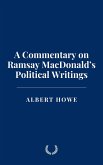The book then examines the resistance to fascism, from underground movements in Nazi-occupied territories to international coalitions fighting against fascist aggression in World War II. It also addresses the postwar reckoning with fascism, looking at efforts to hold perpetrators accountable through trials like Nuremberg, and the complex processes of memorialization and historical memory that followed. Moving into the Cold War and contemporary periods, the book explores the ways in which fascist ideologies have been repurposed and revived through neo-fascist movements and populist leaders across Europe, Latin America, Asia, and the United States.
Particular attention is given to the role of media in spreading fascist ideologies and how new digital platforms have been used by far-right groups to recruit, radicalize, and organize. The resurgence of authoritarian rhetoric and policies in the 21st century is analyzed within the context of globalization, immigration, and economic inequality, highlighting the continued appeal of nationalism, scapegoating, and exclusionary politics. In its conclusion, the book underscores the need for vigilance, historical education, and democratic resistance to the forces of fascism, as it remains a persistent threat to global peace, justice, and human dignity.
Dieser Download kann aus rechtlichen Gründen nur mit Rechnungsadresse in A, B, CY, CZ, D, DK, EW, E, FIN, F, GR, H, IRL, I, LT, L, LR, M, NL, PL, P, R, S, SLO, SK ausgeliefert werden.









